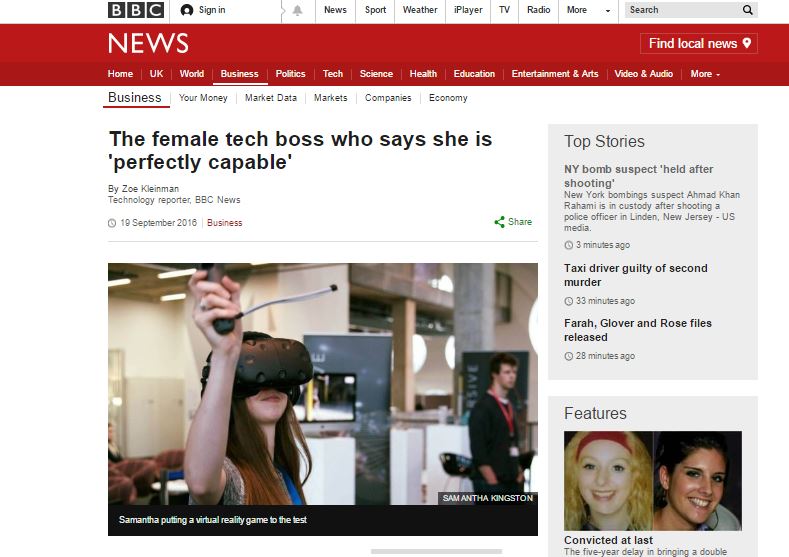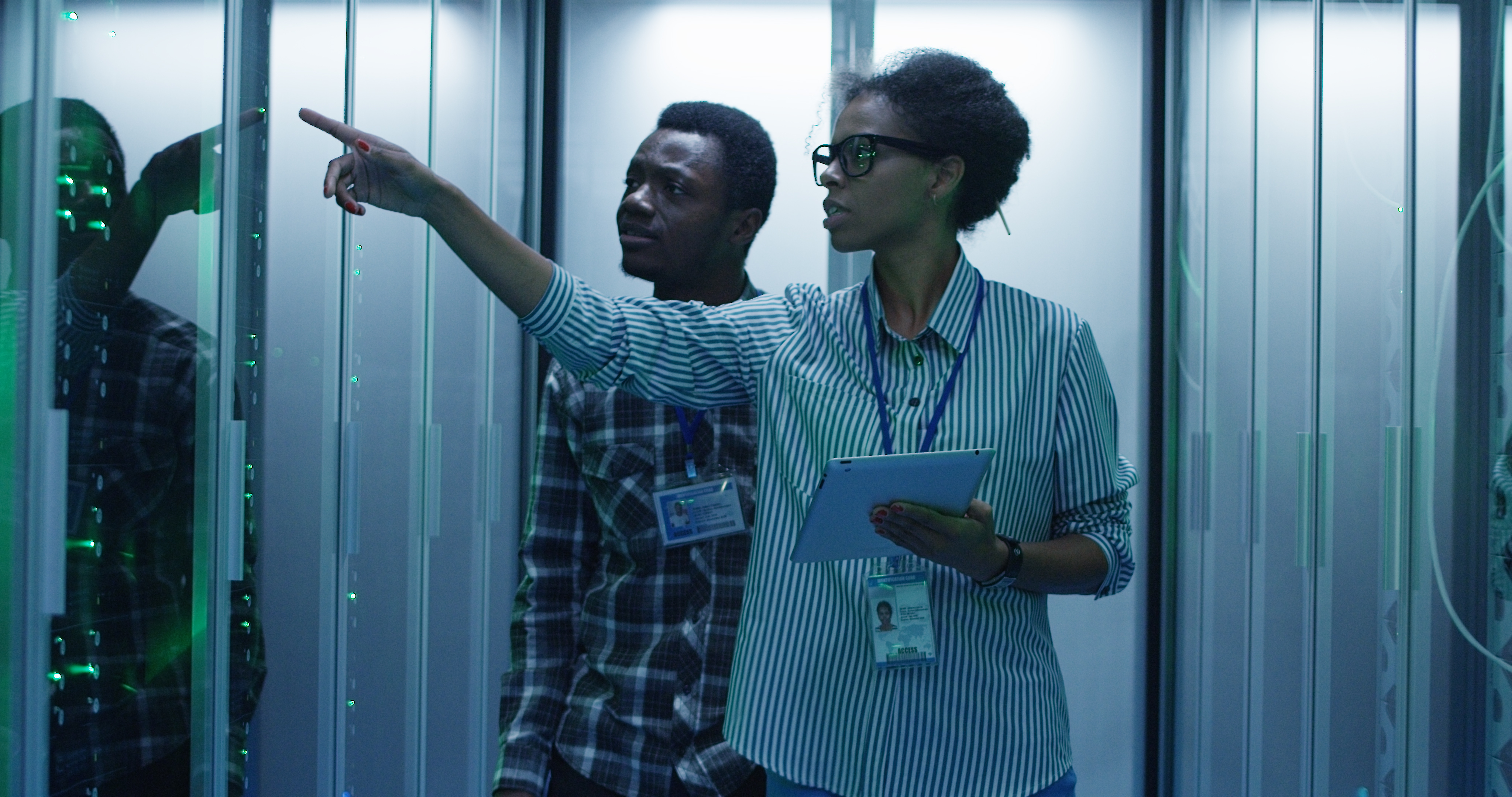Women in tech: when the media isn’t helpful
BBC profile appears amazed women can succeed in technology


There's one time when it's best to treat women in tech like one of the guys: not at the strip club for lunch (yes really, and that's not cool) or in "bants" around the office (unless you know they're down with your "jokes"), but in the media.
On one hand, the BBC profile of VR marketing start-up founder Samantha Kingston is good news: it highlights on a global platform a talented woman who's clearly found success in the technology world. On the other hand, the language used is "perfectly" disappointing.
Let's start with the headline: "The female tech boss who says she is perfectly capable'."
Ten words, and so many problems.
First, the news in this case isn't Kingston's successful start-up, or her thoughts about the potential of virtual reality, as it would be with a male subject. Rather, the focus is the fact she's female. That is her accomplishment, it would seem.
Second, not only is she a women in tech, but it's (apparently) news that she's good at it, that she's "perfectly capable". As though that was ever in doubt in the founder of a company.
It isn't news. It's obvious if she's running a company that's a success, she's surely "capable" by definition. (And surely I can't be the only one who sees something in quote marks and automatically reads it as sarcastic, though I'm sure that's not the intent.)
Get the ITPro daily newsletter
Sign up today and you will receive a free copy of our Future Focus 2025 report - the leading guidance on AI, cybersecurity and other IT challenges as per 700+ senior executives
Third, look at the phrasing. Our evidence of her capability isn't her evident success, but her own word on it Kingston "says she is" able to do her own job. A headline used elsewhere on the site describes Kingston as "the female tech boss who says she is just as good as the men". That emphasised workd introduces doubt, and raises the question of whether other people would agree.
I'd argue she's better than many men or women, the combination of which are called "people" at their jobs, which is why the BBC is taking the time to talk to her.
Imagine a profile of a "male nurse who says he is just as caring as the women" or a "male teacher who says he's good' at his job".
If those make you flinch or sound ridiculous, so too should the headline on Kingston's profile. Now try it with any descriptor beyond gender. Would you put that in a headline? Of course not.
The rest of the story which you may notice is written by a woman follows in a similar tone, which is a shame. By all means, celebrate women for succeeding in an industry that doesn't favour them, but if Kingston's worth writing about - and she is - then focus on her accomplishments. Her startup is the story, not her gender alone.
Freelance journalist Nicole Kobie first started writing for ITPro in 2007, with bylines in New Scientist, Wired, PC Pro and many more.
Nicole the author of a book about the history of technology, The Long History of the Future.
-
 Meta just revived plans to train AI models using European user data
Meta just revived plans to train AI models using European user dataNews Meta has confirmed plans to train AI models using European users’ public content and conversations with its Meta AI chatbot.
By Nicole Kobie
-
 AI is helping bad bots take over the internet
AI is helping bad bots take over the internetNews Automated bot traffic has surpassed human activity for the first time in a decade, according to Imperva
By Bobby Hellard
-
 It’s the end of the road for Women Who Code, following loss of “critical” funding
It’s the end of the road for Women Who Code, following loss of “critical” fundingNews The organization supporting women in the tech industry is being dissolved 13 years after it was founded
By Emma Woollacott
-
 Five common barriers holding back women in tech
Five common barriers holding back women in techWomen in tech still face significant challenges in the workplace
By Keri Allan
-
 Report: Brexit and COVID to blame for lack of diversity in tech
Report: Brexit and COVID to blame for lack of diversity in techNews One in two surveyed respondents cited the two events as key factors in the failure to improve diversity in leadership roles
By Sabina Weston
-
 Australia allocates $6.7 million to advance women in STEM initiatives
Australia allocates $6.7 million to advance women in STEM initiativesNews Women make up only 28% of the country's STEM workers
By Zach Marzouk
-
 IT Pro Panel: What’s stopping diversity in tech?
IT Pro Panel: What’s stopping diversity in tech?IT Pro Panel The need for more diversity is well established - but we still have a way to go
By Adam Shepherd
-
 AWS partners with NPower to boost jobs for women of color in tech
AWS partners with NPower to boost jobs for women of color in techNews Command Shift will find tech jobs for underserved group
By Danny Bradbury
-
 AWS and The Dream Collective aim to bring more women into tech
AWS and The Dream Collective aim to bring more women into techNews The SheDares learning program offers women expert advice on how to pursue a career in technology
By Praharsha Anand
-
 Why aren’t women heading more tech startups?
Why aren’t women heading more tech startups?In-depth Women are in incredibly short supply as founders of top tech firms. What’s going on, and can the situation change for the better?
By Sandra Vogel